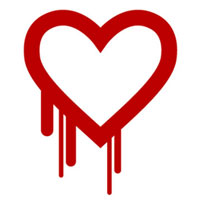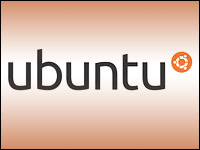
Microsoft has filed complaints against TomTom in both the U.S. District Court in Seattle and with the International Trade Commission, alleging that the GPS gadget maker has infringed eight of its patents. Is this another day, another tech patent suit story? If it were any other plaintiff, perhaps.
The patents Microsoft claims TomTom has violated: “Vehicle Computer System with Open Platform Architecture,” “Method and System for Generating Driving Directions,” “Methods and Arrangements for Interacting with Controllable Objects within a Graphical User Interface Environment Using Various Input Mechanisms,” “Portable Computing Device-integrated Appliance,” “Vehicle Computer System with Wireless Internet Connectivity,” “Common Name Space for Long and Short Filenames” — which was cited twice because it was re-examined and then issued another patent — and “Method and System for File System Management Using a Flash-Erasable, Programmable, Read-only Memory.”
Linux Attack?
Because three of the patents in question are based on Linux technology, Microsoft’s action has raised hackles in the open source community. Suspicions are rampant that the software giant is making an about-face from its recent softening toward Linux and has decided to launch a stealth attack using this lawsuit as a back door.
Another point that makes this case a little different from other tech suits is that Microsoft rarely turns to the courts to resolve perceived patent violations. It is usually a defendant in such cases — with as many as 50 cases pending against it at any time, Raymond Van Dyke, a technology attorney with Merchant & Gould, told LinuxInsider.
Prior to the TomTom filing, Microsoft had initiated lawsuits against just two firms — Primax and Belkin — both of which were settled.
The ITC Looms
Redmond has tried to engage TomTom in licensing talks for more than a year, according to Microsoft deputy general counsel Horacio Gutierrez.
Given the expense of litigation, the latest legal action is likely to end at the settlement table, but by filing with the U.S. International Trade Commission, it is clear that Microsoft means business, said Van Dyke, who has experience in handling ITC 337 litigation.
Microsoft is seeking “to obtain an exclusionary order barring the importation of TomTom devices at our border,” he said.
“Whereas the District Courts can award damages and injunctions, those remedies are likely years away. Although the ITC in a section 337 action does not award damages, it moves fast, and [this case] could be over in a little more than a year,” Van Dyke explained.
“Further, the ITC 337 exclusionary order remedies have devastating consequences on a losing defendant,” he continued. “Their imports into the U.S. could be interdicted, seized and perhaps destroyed. Many foreign companies have felt the sting of ITC 337 actions, most recently many Chinese companies.”
Because ITC 337 is a trade-based action, the government will have to decide whether it will file the suit against TomTom within 30 days. “Microsoft most certainly did its homework and the 337 action will most likely institute,” Van Dyke said.
“In view of the double punch of yesterday’s court and ITC filings, I expect TomTom to resume licensing discussions with more vigor,” he predicted.
Worries From Open Source
It’s possible, however, that Microsoft is doing more than engaging in a bit of hardball to get TomTom to reopen licensing negotiations.
“The open source crowd are jittery that this is but the first case against Linux vendors,” writes Gary Odom.
Last year, Steve Ballmer accused Linux of infringing 235 Microsoft patents, he noted.
Microsoft’s Gutierrez, for his part, has told reporters that the filings are not targeting Linux technology per se, but rather the manner in which TomTom has used it.
It’s hard to judge which camp is correct without a look at the code, said Bernard Golden, founder of virtualization and cloud computing consulting companyHyper Stratus, and author of Succeeding with Open Source.
Still, it’s “interesting” that Microsoft is pursuing this case, Golden told LinuxInsider. “It will definitely cause them ill will in the open source world, and it must know that.”
Despite occasional comments by senior executives that might suggest the contrary, Microsoft has been working toward a truce with open source for the last few years, he said. “It has been actively working with open source projects so they work well on Microsoft platforms; their approach to open source has become much more sophisticated than it was three or four years ago.”





















































Microsoft has been able to register many questionable patents only because the US patent office is not up to the task of dealing with the nature or volume of applications. No mathematical formula may be patented according to statute. Programming is mathematics. Boolean algebra. Relational theory. The fundamentals of computer science.
Microsoft’s only interest in challenging ownership over, for example, the fat16 file system (as opposed to file systems in general) is to discourage the interoperability of hardware and software to limit competition in the market place. File systems were pioneered long before Gates got going. Microsoft should be paying royalties to the developer of the first file system (never mind the first fat16). Fat-16 is nothing more than a standard used on open technology, it is not a technology in itself. Microsoft did not invent the "Winchester Disk" did they?
Nuisance legal actions, as a tool of commerce, against innocent bystanders like TomTom should be opposed vigorously by the entire FOSS community. Microsoft has a history of shabby dealing in the industry and it deserves to be slapped down smartly! Microsoft is asking distributors and users of Linux to pay royalties for up to 235 of its junk ‘patents’, in order to spread fear, uncertainty and doubt and make people hesitant to use open source. This method of conducting business is bad for everyone.
Microsoft is trying to enforce imaginative IP patents through litigation in order to herd-in users. They should try offering competive software that people will buy on value. Microsoft should be charged and heavily fined for its continual bad-faith actions.
I assert that everything Microsoft has developed that stems from GPL is now, ipso facto, GPL. Since Microsoft C is just an ‘extension’ of ANSI C…Microsoft C is now a GPL product. Microsoft C++ is an ‘extension fo ANSI C++…Microsoft C++ is now a GPL product. Sun Microsystems aptly defended Java, Microsoft J++ is toasty. Continuing along this line, everything that has been developed by Microsoft, subsequent to Microsoft C is GPL {cf. The C Programming Language, Prentice-Hall, Englewood Cliffs, N.J. 1978}.
Microsoft’s foray into VOIP will no doubt see them try to patent voice-to-ip technology, which amounts to little more than old-fashioned analogue-to-digital conversion using open hardware (sory, that is Verison v Vonage, but same idea). VOIP originated in 1974 with Department of Defence engineers who were developing the Arpanet (pre Internet)! The first VOIP call was made from the back of a computer laden government van parked San Francisco. That patent (if there ever was one) ran out back in 2004!
TomTom should not worry; Anaximander owns the patent to maps ~ and if ‘Anax’ says nothing, Thomas T is so home-free, eh?